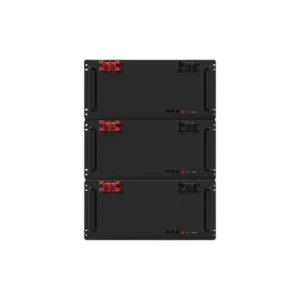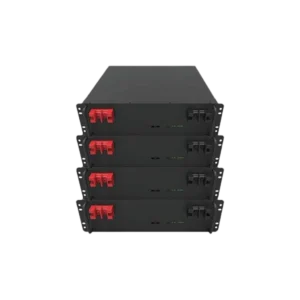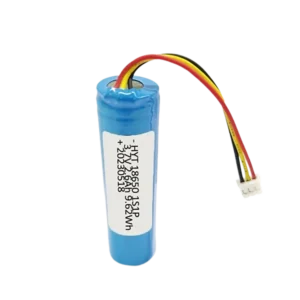5Kwh Home Stack Battery
The 5kWh stackable battery is a modular design energy storage system commonly used for home and industrial energy storage. Typically, a single battery module has a capacity of 5kWh and supports stacking to increase capacity, with a maximum of 16 modules, reaching up to 90kWh.
Due to its 3U sheet metal casing, it is also called a 3U battery. Inside, it uses high-quality LiFePO4 cells, offering high density and a cycle life of over 6000 cycles.
It is usually used with solar panels and inverters, converting solar energy into electricity during the day and providing power for homes or industrial applications at night.
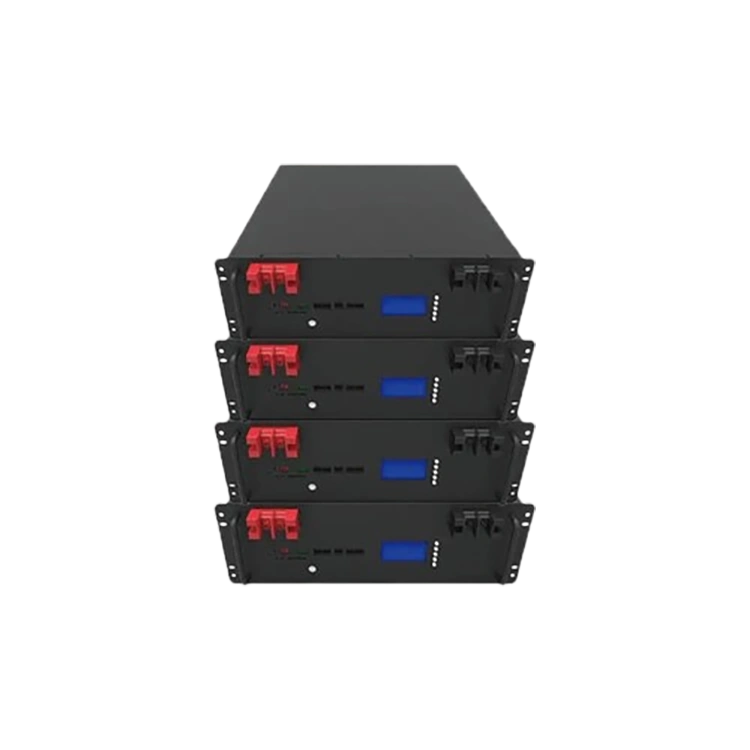
- UL1642
- IEC62133
- UN38.3
- MSDS
48V 5Kwh battery specs
-
Charging Voltage 58.4V(3.65v)
-
Nominal Voltage 51.2V
-
Nominal Capacity 100Ah(5.12KWh)
-
Discharge Cut-off Voltage 43.2V(2.7v)
-
Charge Current 100A
-
Max Charge Current 200A
-
Discharge Current 100A
-
Max Discharge Current 200A
-
Operatingt Tmperature -20~55℃
-
Dimension 450*442*177mm
-
Weight 45Kg
-
Lifespan 6000
-
Communication protocol RS485/CAN
-
LCD Yes
-
BMS Yes
-
Customization Yes
Structure of 5kwh battery backup specs
-
Barrier terminal block Positive connection
-
Barrier terminal block - Neg Negative connection
-
Switch air switch (optional)
-
RS485 port Yes
-
RS232 port Yes
-
CAN port Yes
-
Dial switch ADS
-
Dry contact Do
-
LED Yes
5kW Battery Inverter Controller System Parameters
-
Rated Power 5500W, 8000W, 10000W
-
Input Voltage 48VDC
-
Output Voltage 230VAC
-
Frequency Range 50Hz/60Hz
-
Peak Power 11000W, 16000W, 20000W
-
Efficiency Up to 93.5%
-
Transfer Time 10ms
-
Waveform Pure sine wave
-
Maximum Solar Charging Current 80A, 160A
Solar energy storage batteries
5kwh lifepo4 battery peroformance curve
5Kwh 48V 100Ah lifepo4 battery home energy storage system charge & discharge performance curves as below:
- Discharge curves at different temperatures: 10℃, 20℃, 25℃, 60℃.
- Cylce life VS. DOD temperature at 0.2C rate
- 0.2C CC-CV charge charateristics
- Self-discharge characteristics
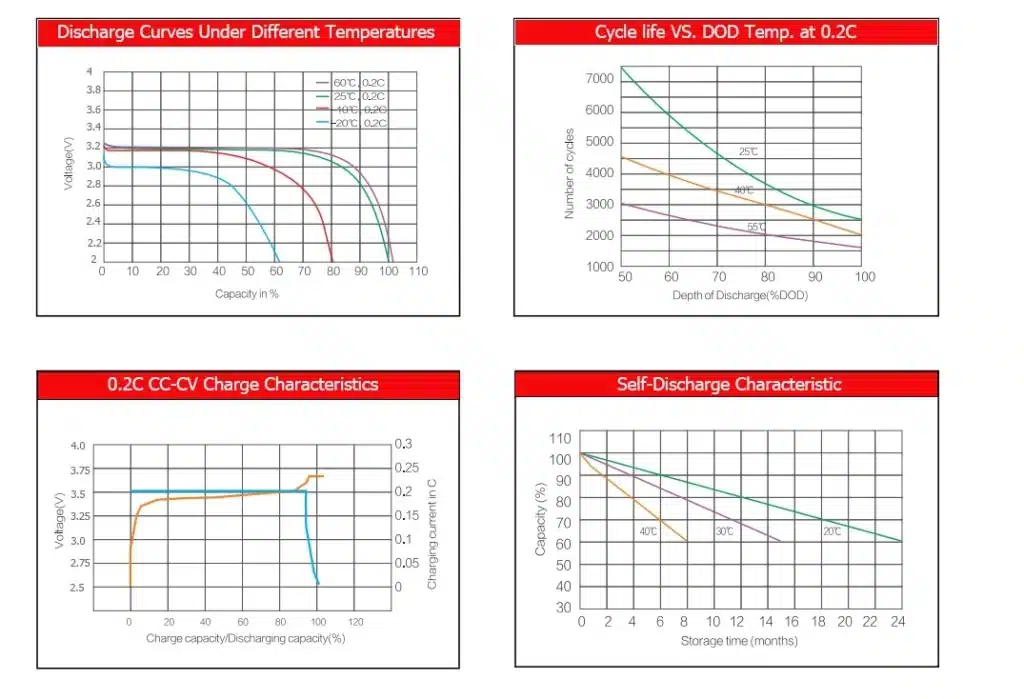
Renewable energy battery storage
5Kwh stackable battery application
Home Energy Storage:
Provides reliable backup power for your home solar system, ensuring that your lights and appliances continue to operate even during a grid outage. Store excess solar energy to charge when electricity prices are low; when prices are high, we can sell the excess power back to the grid. A 5kWh home energy storage battery can provide lighting and refrigerator use for a typical household for one day.
Industrial Energy Storage:
Provides stable power supply for industrial sites, improving production efficiency. Reduce peak and off-peak electricity price differences, lowering electricity costs. A factory using a 5kWh home energy storage battery can save up to 10,000 yuan annually on electricity bills. Supports emergency power supply to ensure critical business operations, guarantee normal production, and deliver on time.
Scalability:
Supports multiple batteries in parallel, up to 16 in parallel, to meet different scales of energy storage needs. As your needs grow, you can easily add battery modules for expansion. Typical application scenarios include hotels, office buildings, field operations, emergency rescue, and more.
Lithium-ion battery production process
#1 Cell Selection
Select the number of 18650 cells or LiFePO4 cells we need. Ensure they works fine.
#2 Battery Sorting
Make sure that the capacity, voltage, and internal resistance of the selected cells are consistent.
#3 Arrangement & Assembly
Combine the required battery modules in a series-parallel manner.
#4 Spot Welding
The positive and negative terminals of the battery are connected via nickel tabs to form the desired capacity or voltage.
#5 Mounting Protection Board
Connect the protection board on the battery pack to ensure that its overcharge, overdischarge and short circuit protection functions properly.
#6 Packaging & Aging
Wrap the battery pack in a PVC or metal casing while charging and discharging to activate the battery pack performance.
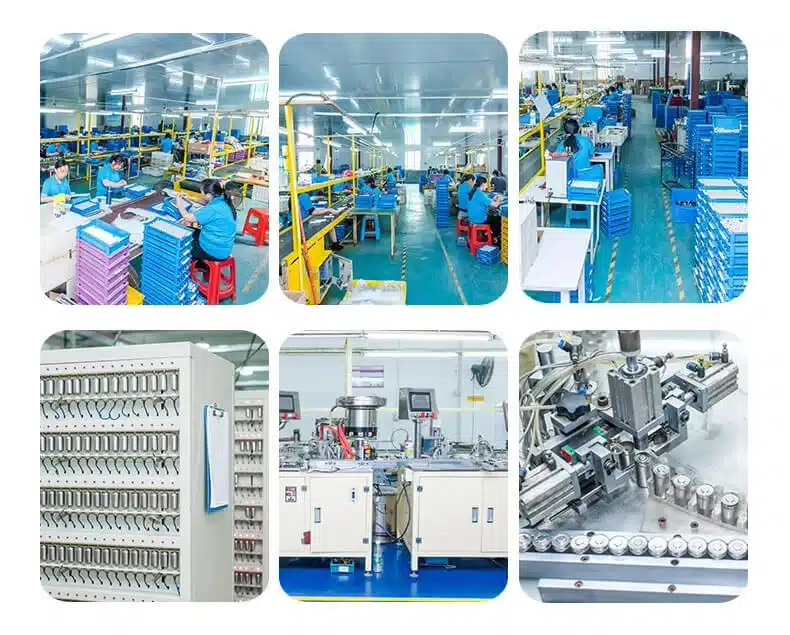
Get Started
Get 5kwh lithium battery quote today
We will evaluate your project and get back to you within 1 working day.
FAQs for lifepo4 5kwh battery
The usage time of a 5kWh battery depends on the power consumption of the connected devices. For example, if the total power consumption of the devices is 200 watts, the battery can last about 25 hours (5000Wh / 200W = 25 hours).
However, high-power devices like air conditioners or electric heaters will deplete the battery more quickly. The power consumption of the devices, the depth of battery discharge, and the ambient temperature are the three main factors affecting battery usage time.
Here are some power consumption references for common appliances:
- Refrigerator: 100-200 watts
- Air conditioner: 500-1000 watts
- Light: 40-100 watts
- TV: 100-200 watts
- Washing machine: 400-800 watts
- Electric water heater: 1500-3000 watts
The lifespan of a 5kWh battery varies depending on the type and usage. Our LiFePO4 batteries typically last 10-15 years or about 6000 charge cycles.
Key factors affecting lifespan:
- Depth of Discharge: It is recommended to keep the depth of discharge between 50%-80%. Excessive discharge depth will shorten the battery's lifespan.
- Charging Frequency: Frequent charging and discharging will accelerate battery aging.
- Ambient Temperature: Avoid using the battery in extremely high or low temperatures to prevent capacity degradation.
Depth of Discharge (DoD) Frequent deep discharges (e.g., discharging below 50%) will shorten the battery lifespan. It is recommended to keep the depth of discharge between 50%-80%.
Temperature Temperature affects battery performance and lifespan. In extreme high temperatures (e.g., above 40°C) or low temperatures (e.g., below 0°C), the battery's capacity and efficiency will decrease. The ideal operating temperature for batteries is between 0°C and 40°C.
Charge and Discharge Rate High-rate charging and discharging will cause the battery to age faster. It is recommended to use a standard charge and discharge rate of 0.5C to extend battery life.
Maintenance Check the battery for damage and clean the battery terminals. Use the original or matching charger for the battery specifications. Avoid leaving the battery idle for long periods; it is recommended to charge and discharge it once every 3 months.
Battery Management System (BMS)
The BMS is the brain of the battery pack, responsible for monitoring and managing the health of each battery cell. It can monitor parameters such as battery voltage, current, and temperature in real-time and make adjustments and controls as needed. The main functions of the BMS include:
- Ensuring balanced charging and discharging of the battery, preventing individual batteries from overcharging or over-discharging.
- Preventing thermal runaway of the battery.
- Monitoring the health of the battery and detecting potential faults in time.
Overcharge/Over-discharge Protection
Overcharging and over-discharging severely damage the battery and can even cause explosions or fires. To prevent this, the 5kWh battery is equipped with overcharge/over-discharge protection circuits. When the battery is charged or discharged to preset limits, the protection circuit automatically disconnects the connection.
Short-circuit Protection
A short circuit can cause a sudden surge of current in the battery, potentially leading to fires or explosions. When a short circuit occurs, the protection device automatically disconnects the circuit and cuts off the current.
Thermal Management
During charging and discharging, the battery generates heat. To ensure the battery operates within a safe temperature range, the 5kWh battery is equipped with a thermal management system. The thermal management system typically includes components like fans and heat sinks to help dissipate heat from the battery.
Hongyitai has been producing lithium battery over 10 years. All our home energy storage battery comes with 3 -~5 years warranty, as well as relative certificates, such as CE, IEC62133, UN38.3, MSDS.
We don’t have MOQ limits. We can support you small quantity. Our production ability is over 3 containers per month.
